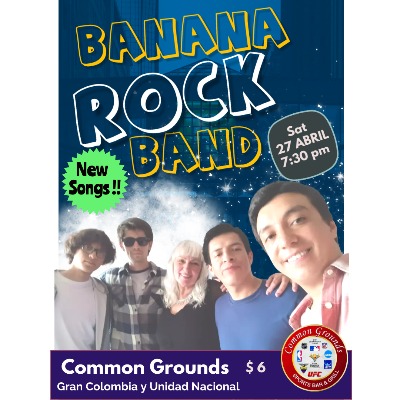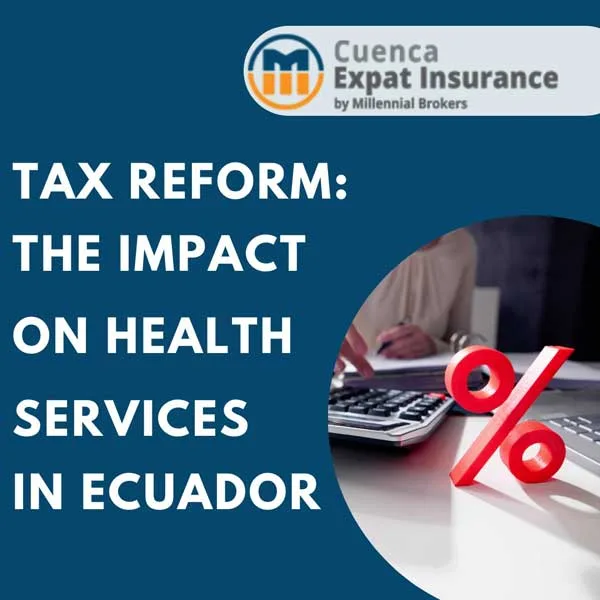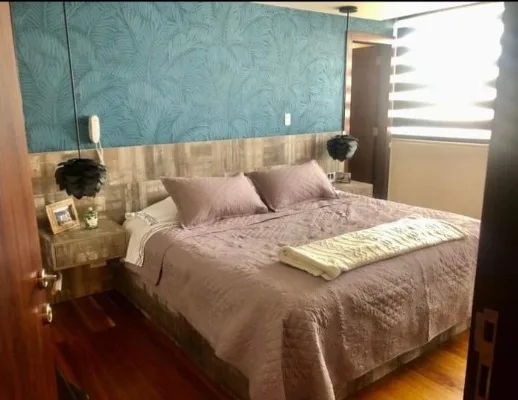New Venezuelan-run health center gives refugees a chance to get well in Cuenca

Help at last! Yuriannys with her daughters, Gabriela, aged 10, and Jeannys, aged two.
Text and photos by John Keeble
A volunteer medical center for refugees has opened next to the San Francisco Plaza to help people without the money or knowledge to meet their health needs.
Grace, an acronym for Give Refugees A Chance, is treating and advising a growing number of patients who feel they have nowhere else to seek help. It is predominantly a Venezuelans-helping-Venezuelans project but volunteers include Ecuadorians and gringo expats – and it takes any patient poor enough to need it.
Although Grace has skilled care and kindness in abundance, it is desperately short of medical equipment, medicines, money for laboratory tests, and even basic needs like adequate space and furniture. It is housed in a storage area and one of the two consultation beds is a wooden bench.

Nurse Dominga Piña checks a patient on the wooden ‘consultation bed.’
“Everything we use is donated,” said Gregorio Hernández, a Venezuelan refugee who has built a new life in Cuenca and who manages the project. “We have doctors but we need donations for equipment and more accommodation.”
The center bridges a gap between fearful and poor refugees and the kindly Ecuadorian health service. “The health system here would look after them but refugees do not have the information about it and they are frightened they will be deported,” said Dr Oswaldo Landa, a Venezuelan physician who volunteers at the center. “The people who come here feel they can trust us.”
It is easy to see why Grace has such urgent needs for space, equipment and money: it treated 60 patients in June with four doctors, 174 in July with seven doctors, and August’s total, with eight doctors, looks like it will be even higher. Many patients are suffering with illnesses associated with unaccustomed cold weather, and with bites from insects in poor accommodation.
Grace is using hostal storage space above the Soup Kitchen at the back of San Francisco church. It started about four months ago as a project involving Saxon Gotfried, who founded Grace, and Hernández, who has legal training and manages it on a day-to-day basis.

Volunteer Mary Finn uses her fluent Spanish to welcome patients.
San Francisco church provided the space as well as some medicines; the first volunteer doctor was recruited; and donors started to make the service possible. Now eight doctors work on a rota system at the center on Tuesdays and Thursdays.
The number of patients rises as news of the project circulates by word of mouth, the number of refugees in Cuenca grows, and the cold of August weather combines with poor living conditions to badly affect refugees who come from a warmer climate.
“The people who come to us are desperate,” said Hernández. “They have no money for medicines and they have no knowledge of how to get help from the Ecuadorian health centers.”
Grace treats those it can – it does not have the resources for serious cases, which are referred to Cuenca’s free hospitals or other services. When possible, it gives medicines from its meagre supply that sometimes includes drugs donated by people who no longer need them. In other cases, it tells patients how they can seek treatment from free local services.

Dr. Oswaldo Landa with two patients waiting their turns for consultation.
Patients suffering from the seasonal cold weather use the Soup Kitchen’s clothing store to obtain free clothes. Grace also gives refugees an introduction to a food bank where they can buy food very cheaply – but it does not have enough money to give refugees the $5 they need to use the service.
One of the U.S. expat volunteers, Taylor Brooke, said: “The centre is desperately short of everything – equipment, medicines and money. Anyone with anything useful, like a blood pressure monitor or even drugs no longer needed, can help by donating them.”
THE PATIENTS
Refugees sit patiently waiting to see one of two doctors. There is a depressed quietness of people sick and without money or knowledge to get relief. Their only hope is here at the Grace center.
Among them is a woman with two children, the youngest coughing wretchedly and the older slumped across her lap. Two volunteers drag a hostal mattress from a pile stored in the room and put it on the floor for the family.

Gregorio Hernández and Dominga Piña.
“We have nowhere to go and no one to help us,” said the mother, 28-year-old Yuriannys, who arrived in Cuenca the night before with her daughters Gabriela, aged 10, and Jeannys, aged two.
Yuriannys had not eaten since leaving Quito the day before but the girls were given food by other bus passengers. With no money, they had to spend the night in Cuenca’s Terminal Terrestre. Another Venezuelan told them where they could get help from Grace.
“We had to leave Venezuela because there was no food or it was too expensive to buy,” said Yuriannys. “It was dangerous to go out and there was no school for my daughter. No water, no milk, no electricity, no medicine or diapers.”

Dr Rafael Escalante examines a patient in one of two consultation rooms.
THE DOCTORS
Dr Oswaldo Landa, a general physician, is one of the volunteer doctors at the center. He left Venezuela when it became impossible to serve his patients and has found a new life in Cuenca.
“I like to help people,” he said. “Being here, helping people, makes me feel useful. The patients do not have money to buy medicines. They have no work and no means to live.”
The project hopes to find more volunteer doctors and health workers.
THE NURSE
Dominga Piñabe became the first paid staff member after a donor offered to finance her for two days a week. She was a licensed nurse in Venezuela before being forced out by conditions there. “I walked for eight days because I had no money,” she said. “I was desperate.”
Her knowledge of medicines enabled her to get a part-time job managing medical supplies and she has been able to rent a house with her family.
At Grace, she gives patients preliminary examinations, records their details, and assists the doctors.

Patients wait patiently to be examined by a doctor.
THE VOLUNTEERS
Mary Finn, a U.S. expat who has lived in Cuenca for eight months, uses her fluent Spanish to welcome patients and help them to feel comfortable at the center. She volunteers on a rota with other expats who can speak Spanish. “You can see the real need for this service,” she said. “This is a good way to help.”
Some volunteers, like Taylor Brooke and Richard Signes, try to find people to donate equipment, money and more medical help. They also take a turn helping at the center.
“It is so worthwhile,” she said. “Patients are grateful for any help. I can see the relief and happiness in their smiles. It is so rewarding to do what we can to help them.”
THE DONORS
Many people have made donations in the four months that the center has been running – plastic chairs for waiting patients, medical instruments, medicines, money – but more donations are urgently needed to keep pace with the demand of refugees arriving with no money or means to making a living.
Among the most urgently needed items are: a consultation bed, two stethoscopes, two blood pressure monitors, and money for laboratory tests.
You can contact Gregorio Hernández at 096 315 6008. Although he speaks very good English, it is easier for him if you use WhatsApp.
To donate or volunteer, you can use the project’s new website:
www.giverefugeesachance.org
___________________
Author’s note: All patients and staff gave permission for their photographs and comments to be used in this article


















